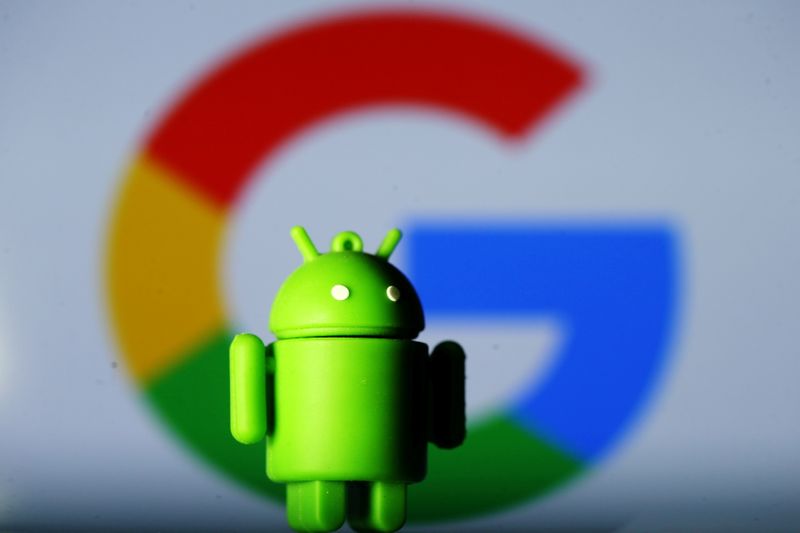By Foo Yun Chee
LUXEMBOURG (Reuters) -Alphabet unit Google (NASDAQ:GOOGL) on Monday blasted EU antitrust regulators for ignoring rival Apple (NASDAQ:AAPL) as it launched a bid to get Europe's second-highest court to annul a record 4.34-billion euro ($5.1 billion) fine related to its Android operating system.
Far from holding back rivals and harming users, Android has been a massive success story of competition at work, representatives of Google told a panel of five judges at the General Court at the start of a five-day hearing.
The European Commission fined Google in 2018, saying that it had used Android since 2011 to thwart rivals and cement its dominance in general internet search.
Regardless of how the court rules, Google, Apple, Amazon (NASDAQ:AMZN) and Facebook (NASDAQ:FB) will have to change their business models in the coming years to ensure a level playing field for rivals following tough new rules proposed by European Union antitrust chief Margrethe Vestager.
"The Commission shut its eyes to the real competitive dynamic in this industry, that between Apple and Android," Google's lawyer Meredith (NYSE:MDP) Pickford told the court.
"By defining markets too narrowly and downplaying the potent constraint imposed by the highly powerful Apple, the Commission has mistakenly found Google to be dominant in mobile operating systems and app stores, when it was in fact a vigorous market disrupter," he said.
Pickford said Android "is an exceptional success story of the power of competition in action".
Commission lawyer Nicholas Khan dismissed Apple's role because of its small market share compared with Android.
"Bringing Apple into the picture doesn't change things very much. Google and Apple pursue different models," he told the court.
Khan cited Google's agreements which forced phone manufacturers to pre-install Google Search, the Chrome browser and the Google Play app store on their Android devices, and payments to pre-install only Google Search as conduct that did not allow for competition.
He said Google's dominance as an incumbent and the immense barriers for rivals resulted in "a virtuous circle for Google but a vicious circle for anybody else".
Android, free for device makers to use, is found on about 80% of the world's smartphones. The case is the most important of the European Union's three cases against Google because of Android's market power. Google has racked up more than 8 billion euros in EU antitrust fines in the last decade.
German phone maker Gigaset Communications GmbH, which is backing Google, said its success as a European smartphone maker was due to Android's open platform and lamented the negative impact of the Commission's decision on its business.
"The licence fee for the Play Store that Google now charges as a result of the contested decision represents a significant portion of the price of Gigaset's smartphones aimed at price-sensitive consumers," its lawyer Jean-François Bellis told the court.
Lobbying group FairSearch, whose complaint triggered the Commission case, was however scathing about Google's tactics with phone makers.
"Google adopted a classic bait and switch strategy. It hooked (them) on a supposedly free and open source operating system subsidised by its search monopoly, only to shut that system to competition through the web of restrictions at issue in this case," its lawyer Thomas Vinje told the court.

A verdict may come next year. The case is T-604/18 Google vs European Commission.
($1 = 0.8537 euros)